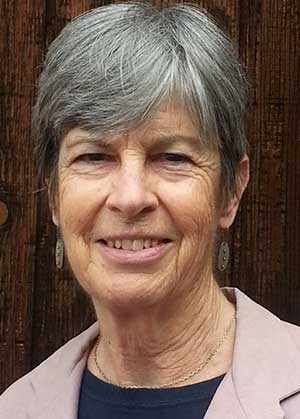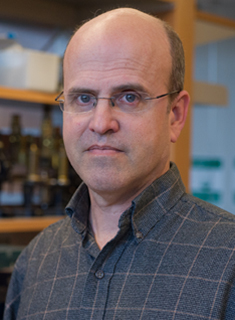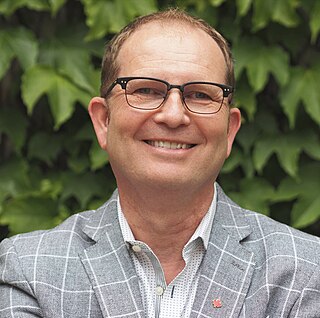Pluralism is a term used in philosophy, referring to a worldview of multiplicity, oft used in opposition to monism or dualism. The term has different meanings in metaphysics, ontology, epistemology and logic. In metaphysics, it is the view that there are in fact many different substances in nature that constitute reality. In ontology, pluralism refers to different ways, kinds, or modes of being. For example, a topic in ontological pluralism is the comparison of the modes of existence of things like 'humans' and 'cars' with things like 'numbers' and some other concepts as they are used in science.
John Earman is an American philosopher of physics. He is an emeritus professor in the History and Philosophy of Science department at the University of Pittsburgh. He has also taught at the University of California, Los Angeles, Rockefeller University, and the University of Minnesota, and was president of the Philosophy of Science Association.
The unity of science is a thesis in philosophy of science that says that all the sciences form a unified whole. The variants of the thesis can be classified as ontological and/or as epistemic/pragmatic. There are also philosophers who emphasize the disunity of science, which does not necessarily imply that there could be no unity in some sense but does emphasize pluralism in the ontology and/or practice of science.

Philip Stuart Kitcher is a British philosopher who is John Dewey Professor Emeritus of philosophy at Columbia University. He specialises in the philosophy of science, the philosophy of biology, the philosophy of mathematics, the philosophy of literature, and more recently pragmatism.
The Kenneth P. Dietrich School of Arts and Sciences is one of the 17 schools and colleges of University of Pittsburgh in Pittsburgh, Pennsylvania. A direct descendant of the 1787-chartered Pittsburgh Academy, and the oldest part of the university, the school serves as "the liberal arts core" of the university; some 30 departments and programs provide instruction in natural sciences, humanities, and social sciences to all students at the Pittsburgh campus in Oakland. The school is the largest graduate school in the Pittsburgh area.

Helen Elizabeth Longino is an American philosopher of science who has argued for the significance of values and social interactions to scientific inquiry. She has written about the role of women in science and is a central figure in feminist epistemology and social epistemology. She is the Clarence Irving Lewis Professor of Philosophy at Stanford University. In 2016, she was elected to the American Academy of Arts and Sciences.
Alison Wylie is a Canadian philosopher of archaeology. She is a professor of philosophy at the University of British Columbia and holds a Canada Research Chair in Philosophy of the Social and Historical Sciences.
Scientific pluralism is a position within the philosophy of science that rejects various proposed unities of scientific method and subject matter. Scientific pluralists hold that science is not unified in one or more of the following ways: the metaphysics of its subject matter, the epistemology of scientific knowledge, or the research methods and models that should be used. Some pluralists believe that pluralism is necessary due to the nature of science. Others say that since scientific disciplines already vary in practice, there is no reason to believe this variation is wrong until a specific unification is empirically proven. Finally, some hold that pluralism should be allowed for normative reasons, even if unity were possible in theory.

Joachim Wilhelm "Jo" Messing was a German-American biologist who was a professor of molecular biology and the fourth director of the Waksman Institute of Microbiology at Rutgers University.
Epistemological pluralism is a term used in philosophy, economics, and virtually any field of study to refer to different ways of knowing things, different epistemological methodologies for attaining a fuller description of a particular field. A particular form of epistemological pluralism is dualism, for example, the separation of methods for investigating mind from those appropriate to matter. By contrast, monism is the restriction to a single approach, for example, reductionism, which asserts the study of all phenomena can be seen as finding relations to some few basic entities.
Dean Rickles is Professor of History and Philosophy of Modern Physics at the University of Sydney and a Director of the Sydney Centre for Time.

The Center for Philosophy of Science is an academic center located at the University of Pittsburgh in Pittsburgh, Pennsylvania, dedicated to research in the philosophy of science. The center was founded by Adolf Grünbaum in 1960. The current director of the center is Edouard Machery.
Alisa Bokulich is an American philosopher of science and Professor of Philosophy at Boston University. Since 2010 she has been the Director of the Center for Philosophy and History of Science at Boston University, where she organizes the Boston Colloquium for Philosophy of Science, and serves as a Series Editor for Boston Studies in Philosophy and History of Science. She was the first woman ever to be tenured in the Philosophy Department at Boston University and the first woman to become a director of a center for history and philosophy of science in North America.

Roberta L. Millstein is Professor of Philosophy at the University of California, Davis, with affiliations in the Science and Technology Studies Program and the John Muir Institute for the Environment. She is the Senior Co-chair of the Philosophy of Science Association’s Women's Caucus and an Editor of the peer-reviewed online open-access journal Philosophy, Theory, and Practice in Biology. She also serves as a member of the executive committee and Council for the American Association for the Advancement of Science, Pacific Division (AAAS-PD) as well as the council for the International Society for the History, Philosophy, and Social Studies of Biology (ISHPSSB).

Michael R. Dietrich is a professor of the history and philosophy of science at the University of Pittsburgh. His research concerns developments in twentieth century genetics, evolutionary biology, and developmental biology, with a special emphasis on scientific controversies.

bioRxiv is an open access preprint repository for the biological sciences co-founded by John Inglis and Richard Sever in November 2013. It is hosted by the Cold Spring Harbor Laboratory (CSHL).

Marc Saner is a Full Professor at the University of Ottawa, Canada and Departmental Science Advisor to Natural Resources Canada.
Joel D. Blum is a scientist who specializes in isotope geochemistry and environmental geochemistry. He is currently a professor of Earth and Environmental Sciences at the University of Michigan and an elected member of the National Academy of Sciences. Blum has several named professorships including the John D. MacArthur, Arthur F. Thurnau and Gerald J. Keeler Distinguished Professorship. Blum is a past Co-Editor- in-Chief of Chemical Geology and Elementa, and is the current Editor-in-Chief of the American Chemical Society journal Earth and Space Chemistry.
Jessica Polka is a biochemist and the Executive Director of ASAPbio, a non-profit initiative promoting innovation and transparency via preprints and open peer review. She was one of the organizers of a recent meeting they held on scholarly communication.

Kristin Alexandra Andrews is Professor in the Department of Philosophy at York University and she holds the York Research Chair in Animal Minds.









